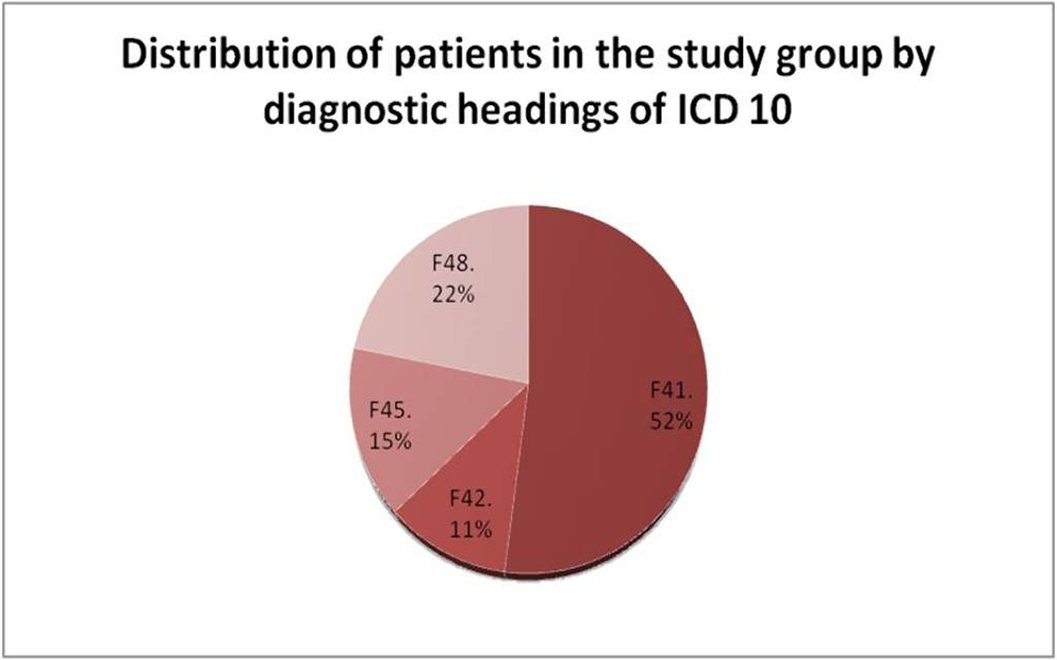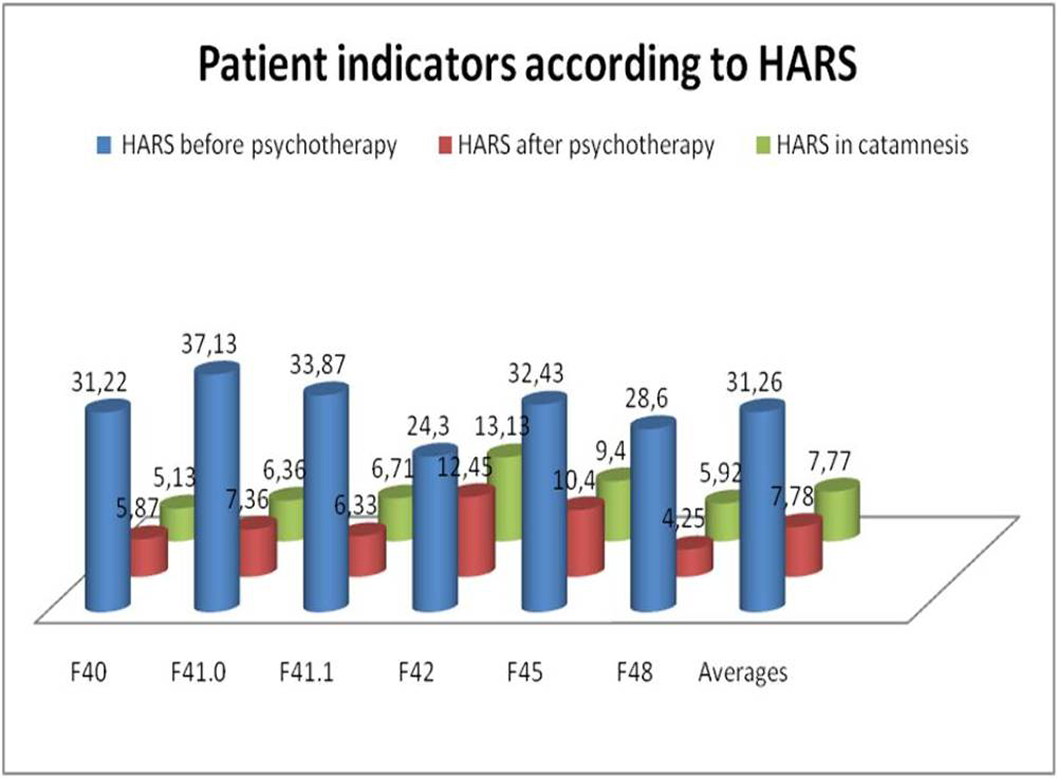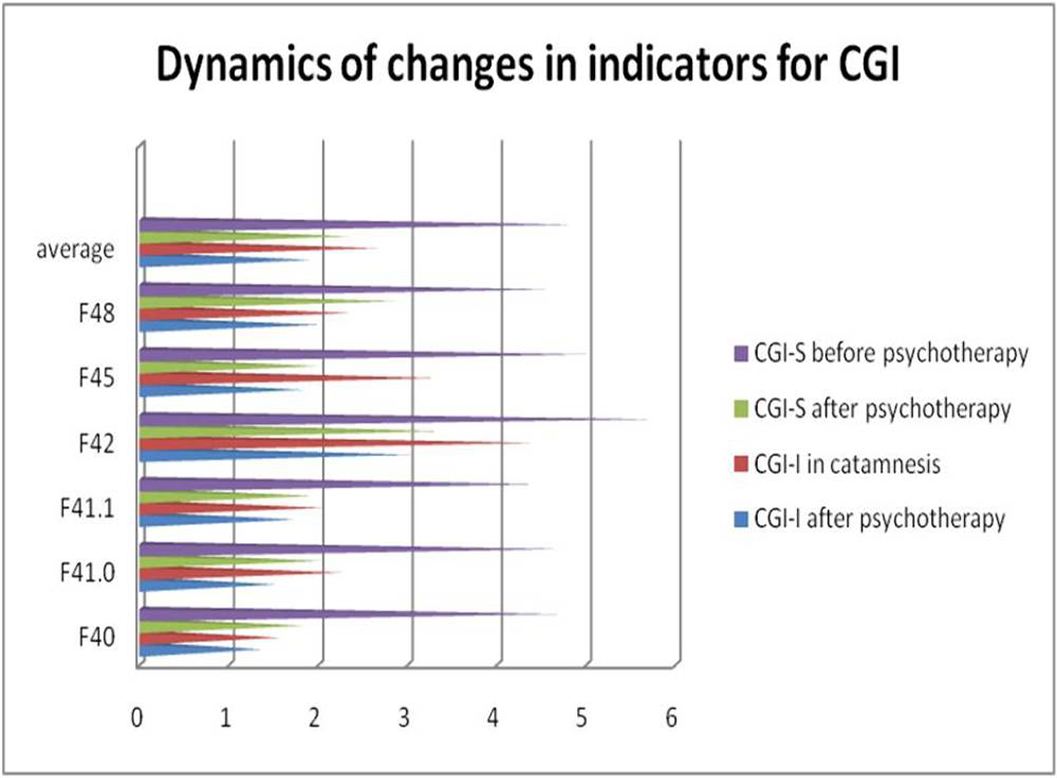No CrossRef data available.
Article contents
Dynamics of clinical and psychological indicators of patients with anxiety neurotic disorders in the treatment of short-term individual analytic-cathartic therapy
Published online by Cambridge University Press: 13 August 2021
Abstract
Analytical-cathartic therapy (ACTA), a modern model of psychotherapy, the theoretical basis of which is the psychology of relations of V.N. Myasishchev. ACTA is intended for the treatment of emotional disorders; the study of the dynamics of clinical and pathopsychological characteristics has not been previously conducted.
To assess the dynamics of the clinical and pathological characteristics of patients with neurotic disorders, in whose clinical picture anxiety syndrome predominated, in the process of an individual ACTA.
A specially designed semi-structured interview, HARS, and the CGI (CGI-S - disease severity, CGI-I - improvement dynamics). The study group (N = 90) included patients with neurotic disorders, whose clinical picture was dominated by anxiety syndrome
AKTA course 12 sessions 3 times a week for 60 minutes. Psychopharmacotherapy during the period of psychotherapeutic treatment in patients was not carried out.
The study of ACTA was carried out before, after treatment and in the follow-up.
The overall decrease in the HARS score was 73.8% - the high success of the therapy in relation to the reduction of anxiety.
On the CGI-I scale - improvement from minimal to significant. On the CGI-S scale, no more than mild disease severity (p <0.01). The change in the CGI scale also indicates the success of the therapy.
As a result of the study, clinical indicators were determined, on the basis of changes in which in dynamics the success of the treatment can be assessed. ACTA allows to clearly reduce anxiety and improve the general condition of patients with neurotic disorders.
No significant relationships.
- Type
- Abstract
- Information
- European Psychiatry , Volume 64 , Special Issue S1: Abstracts of the 29th European Congress of Psychiatry , April 2021 , pp. S785 - S786
- Creative Commons
- This is an Open Access article, distributed under the terms of the Creative Commons Attribution licence (http://creativecommons.org/licenses/by/4.0/), which permits unrestricted re-use, distribution, and reproduction in any medium, provided the original work is properly cited.
- Copyright
- © The Author(s), 2021. Published by Cambridge University Press on behalf of the European Psychiatric Association





Comments
No Comments have been published for this article.